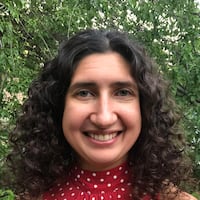Malachi Battle had been doing well in the sixth grade since he started going in person to Couch Middle School. But one day in February, the 11-year-old Grayson area student stayed home sick and attended classes virtually via Zoom.
Strange things started happening. In one class, Malachi said he heard an unknown person yell a racial slur. Teachers said other unidentified people were trying to get into their virtual classrooms.
Two days later, Malachi was suspended, accused of repeatedly trying to log into Zoom classes with threatening phrases and racial slurs in lieu of his name, according to documents that his family’s lawyers provided to The Atlanta Journal-Constitution.
“I was confused because I know I didn’t say any of that,” Malachi said. “I know I didn’t do it.”
Credit: Alyssa Pointer/Alyssa.Pointer@ajc.com
Credit: Alyssa Pointer/Alyssa.Pointer@ajc.com
Malachi’s lawyers say Gwinnett County Public Schools accused him based on an inaccurate list of students’ Internet Protocol addresses from Zoom, a problem that could repeat elsewhere since the company’s online sessions are replacing classrooms for millions of students amid the coronavirus pandemic.
Malachi was suspended through the end of the school year, exactly three months. The Gwinnett County Board of Education on Thursday rejected his appeal of the suspension.
The school district declined to comment, citing federal educational privacy laws.
Malachi’s family plans to appeal to the state board of education, said their attorney, Nick Lotito.
“I am disappointed,” Lotito said. “Hopefully the state board will get this right.”
Zoom did not respond to the AJC’s questions about possible mistakes in reporting IP addresses, but said in a statement that the company “is committed to providing educators with the tools and resources they need on a safe and secure platform.”
Chris Gilliard, a fellow with the Technology and Social Change Project of the Harvard Kennedy School Shorenstein Center on Media, Politics and Public Policy, had not heard of a situation similar to Malachi’s but said “it’s hugely unlikely that this is the first time” a student had been disciplined based on questionable data from Zoom.
Technology experts say students at Dartmouth’s Geisel School of Medicine were mistakenly accused of cheating recently based on data from Canvas software.
In Malachi’s suspension notice, provided by his lawyers, the Gwinnett school district said he was the person who sought admission to Zoom classes with account names such as, “i will murder u all of u,” and other phrases containing threats of rape and murder and racist insults. Teachers could see these names but denied them access to the virtual sessions, so students never saw them.
During the “Zoom bombing” attempts, Malachi had already logged into the classes under his regular name, according to his appeal.
Credit: Alyssa Pointer/Alyssa.Pointer@ajc.com
Credit: Alyssa Pointer/Alyssa.Pointer@ajc.com
The school district retrieved from Zoom a list of the names and IP addresses in each waiting room, Malachi’s legal team said. The Zoom bombers’ public IP addresses matched Malachi’s — but four other students who did not appear to be Zoom bombers were also listed as having Malachi’s public IP address, an impossibility since they were not in the same house, said Scott Moulton, a Woodstock-based forensics expert hired by the attorney working on Malachi’s case.
Moulton said the school district’s technology employee who investigated should have been able to tell that many of the IP addresses in the Zoom report were wrong.
“I would have at least picked up the phone and called Zoom before hanging the life of an 11-year-old kid based on a log that looks like an error,” Moulton said.
The Zoom bombers’ local IP addresses, which identify the exact device being used, did not match Malachi’s, according to the log his attorneys provided. Nor did the local IP addresses match any of the possible sequences available under the configuration of the router in Malachi’s house, Moulton said. There were no other routers or devices in the house that could have used those local IP addresses, Moulton said.
It is possible to change a router’s configuration, but Malachi did not know how and the process would have kicked all his devices off the internet for 10 minutes each time, according to the appeal. The activity logs and Malachi’s teachers confirmed he was continuously connected to all his classes, according to the appeal. Teachers also said Malachi’s camera was on and he did not appear to be doing anything unusual.
During Malachi’s disciplinary hearing in March, teachers described him as generally “polite,” “quiet” and “respectful,” according to the appeal. Teachers also said unknown people had tried to enter their virtual classes using false names before the day Malachi stayed home sick. The social studies teacher in whose class the racial slur was yelled did not recognize the voice as Malachi’s, according to the appeal.
When the school resource officer called to say Malachi was accused of making terroristic threats, his mother had seizures at work and has been on medical leave since, the family said.
Malachi said he liked Couch Middle School before his suspension. Science class was his favorite because he liked the teacher, whom he is accused of bombarding with racial slurs, and he liked the quiz games they played in class.
His 21-year-old aunt has been home schooling him while juggling a full course load at Kennesaw State University.
Malachi’s family said they want to clear his name and expunge the incident from his record, but they are looking into private schools for next year.
“It’s really hard for him to go through this and to be associated with such horrible words,” said Malachi’s grandmother, Gillian Gardener-Valbrun. “That is a stain.”
Malachi said he would feel uncomfortable returning to Couch, where his friends and classmates know what he is accused of.
“I was scared that everyone thought that I actually did that,” Malachi said.
About the Author
Keep Reading
The Latest
Featured


